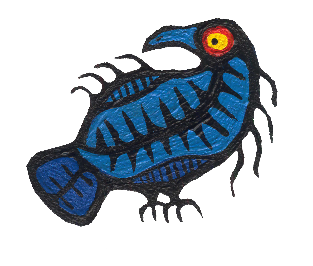Native-Art-in-Canada has affiliate relationships with some businesses and may receive a commission if readers choose to make a purchase.
- Home
- Maple Syrup
- Maple Sugar
- Essiac
Essiac

Essiac is the name given to a blend of roots, leaves and bark that are used to make a tea that marketed as an herbal dietary supplemental.
The blend of herbs was given its name by Rene Caisse ("caisse" spelt backwards), a nurse who worked in northern Ontario in the first half of the 20th century. One of her elderly patients told her that she had been diagnosed with breast cancer fifty years previously and had been treated by an Ojibwa elder with a tea made from local plants. Ms. Caisse made note of the plants and some time later, in a desperate attempt to help an aged aunt who had been diagnosed with stomach cancer, concocted the tea. Under the supervision of her aunt's doctor she apparently relieved her aunt of the symptoms of the disease.
The doctor (and others) had her treat other cancer patients. Ms. Caisse never claimed that she cured cancer. What she said was that essiac was a palliative and a deterrent, but the medical profession hotly defended their territory and the College of Physicians and Surgeons arranged to have her charged with practicing medicine without a license. Various doctors and patients defended her cause but throughout her life she had to fend off opposition and persecution.
The concoction consists of four main herbs that grow wild in the north central part of North America:
Burdock Root was used traditionally to help reduce
mucus, maintain a healthy gastrointestinal tract, stimulate a healthy
immune response, for weak digestion, as a diuretic for waster
retention and to sweat out toxins through the skin. It has vitamin A
and selenium which are said by some to help reduce free radicals and its chromium content
may help maintain normal blood sugar levels.
Slippery Elm - Inner Bark was traditionally used as a poultice for boils, ulcers and for wounds in general. It was also used for colds or fevers and to soothe an irritated digestive system.
Sheep Sorrel is easy to come by. It grows in the wild and is often the first plant to show up after a fire. Its traditionally used as a diuretic but the claim for its inclusion in essiac was that it had anti-tumor properties.
Indian Rhubarb Root The root of this plant has been used for its anti-inflammatory and anticancer effects.
No double blind studies have been done on any of the compounds marketed under the name "essiac" and there is no legislation in place that requires those companies to stipulate the chemical construction or the active ingredients in their concotions . . all of which differ from manufacturer to manufacturer.






